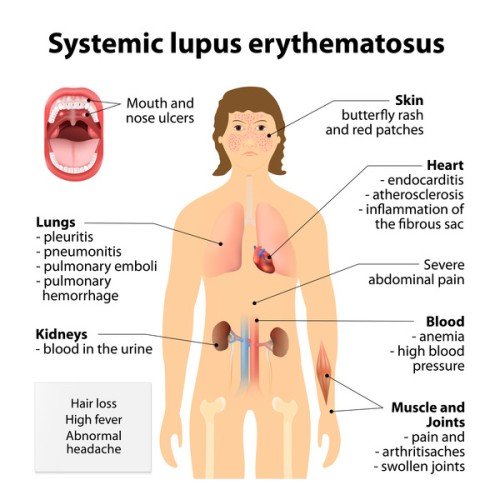
Introduction:
Lupus, a chronic autoimmune disease, affects millions of people worldwide, yet it remains a mysterious and often misunderstood condition. Characterized by a wide range of symptoms and unpredictable flare-ups, lupus poses significant challenges for those living with it. In this blog post, we aim to shed light on this complex illness, exploring its causes, symptoms, treatment options, and the daily struggles faced by individuals with lupus. By raising awareness and understanding, we hope to empower both patients and their loved ones to navigate this journey with knowledge and compassion.
What is Lupus?
Lupus, short for systemic lupus erythematosus (SLE), is an autoimmune disease wherein the immune system mistakenly attacks healthy tissues and organs. This can result in inflammation and damage to various parts of the body, including the joints, skin, kidneys, heart, lungs, and brain. Although the exact cause of lupus is unknown, researchers believe that a combination of genetic, hormonal, and environmental factors contribute to its development.
Lupus, also known as systemic lupus erythematosus (SLE), is a chronic autoimmune disease. In autoimmune diseases, the immune system, which is responsible for defending the body against harmful substances, mistakenly attacks healthy tissues and organs. In the case of lupus, this immune system dysfunction leads to inflammation and damage in various parts of the body, such as the skin, joints, kidneys, heart, lungs, and brain.
The exact cause of lupus is still unknown, but it is believed to be influenced by a combination of genetic, hormonal, and environmental factors. Women, particularly those of childbearing age, are more commonly affected by lupus, although men and children can also develop the disease.
Lupus is characterized by a wide range of symptoms that can vary in severity and can come and go in cycles, known as flare-ups. Some common symptoms include extreme fatigue, joint pain and swelling, skin rashes (often triggered by exposure to sunlight), fever, chest pain, hair loss, mouth ulcers, and kidney problems. Due to the diverse nature of symptoms, lupus is often referred to as "the great imitator" as it can mimic other conditions, making diagnosis challenging.
Diagnosing lupus involves a combination of medical history, physical examination, laboratory tests (such as blood tests to detect specific antibodies), and sometimes imaging studies. Treatment for lupus aims to manage symptoms, prevent flare-ups, and minimize organ damage. Medications such as corticosteroids, immunosuppressants, antimalarials, and nonsteroidal anti-inflammatory drugs (NSAIDs) are commonly prescribed. In addition to medication, lifestyle modifications such as stress management, regular exercise, a balanced diet, and sun protection are crucial in managing the disease.
Living with lupus can have a significant emotional and social impact. The unpredictable nature of the disease, chronic fatigue, and pain can affect daily life and limit physical activities. The invisible nature of the disease often leads to misunderstandings and challenges in receiving support from others. Building a strong support network, seeking counseling, and connecting with lupus advocacy groups can provide emotional support and a sense of community for individuals with lupus.
Raising awareness and understanding about lupus is important to support those affected by the disease. By dispelling myths, promoting empathy, and advocating for better research and healthcare, we can improve the lives of individuals living with lupus and work towards better treatments and ultimately a cure.
Signs and Symptoms:
Lupus is known as "the great imitator" because its symptoms can mimic those of other conditions, making diagnosis challenging. Common signs of lupus include extreme fatigue, joint pain and swelling, skin rashes (especially in response to sunlight), fevers, chest pain, hair loss, and kidney problems. These symptoms can vary in severity and may come and go in cycles, known as flare-ups.
Diagnosis and Treatment:
Diagnosing lupus can be a complex process, as no single test can confirm its presence. Physicians rely on a combination of medical history, physical examination, blood tests, and imaging studies to reach a diagnosis. Once diagnosed, treatment plans are tailored to the individual, aiming to alleviate symptoms, manage flare-ups, and prevent organ damage. Medications such as corticosteroids, immunosuppressants, and antimalarials are commonly prescribed. In addition to medication, lifestyle modifications, including stress management, exercise, and sun protection, play a crucial role in managing the disease.
The Emotional and Social Impact:
Living with lupus can be emotionally and socially challenging. The unpredictable nature of the disease, coupled with its chronicity, can lead to feelings of frustration, anxiety, and depression. Fatigue and pain may limit physical activities and impact daily life. Moreover, the invisible nature of the disease often makes it difficult for others to understand and empathize with those affected. Building a support network, seeking counseling, and connecting with lupus advocacy groups can provide much-needed emotional support and a sense of community.
Raising Awareness and Advocacy:
Increasing awareness and understanding of lupus is essential to improve the lives of those affected by the disease. It is crucial to dispel myths and misconceptions surrounding lupus and promote empathy and support for patients. Through educational campaigns, fundraising events, and engaging with policymakers, the lupus community can advocate for better research, improved access to healthcare, and increased funding for lupus-related initiatives.
Conclusion:
Lupus remains an enigmatic illness that affects millions worldwide. By unraveling its complexities and spreading awareness, we can support those living with lupus and contribute to the advancement of research and treatments. Empathy, compassion, and a willingness to learn are key to creating a more inclusive and supportive environment for individuals with lupus. Together, we can make a difference in the lives of those battling this invisible disease.








